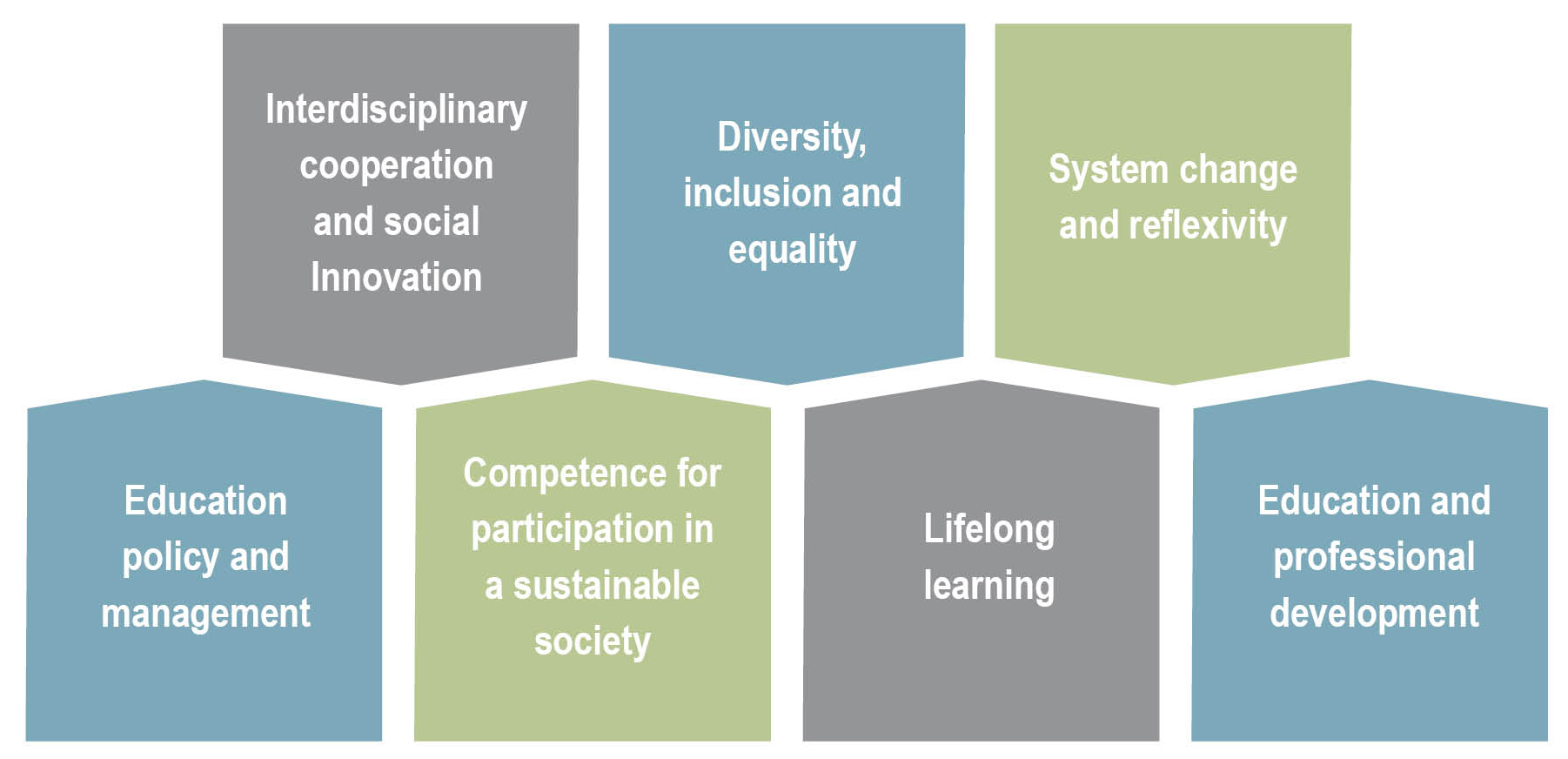The faculty’s research currently encompasses a wide range of topics that either deal explicitly with sustainability, or that are relevant in a broad understanding of sustainability where social science and humanities perspectives are important for creating new insights, perspectives and pathways to a sustainable world.

Research Groups
COSER
The COSER research group (Challenges of Sustainability in Educational Research) investigates challenges that sustainability issues raise for pedagogy and didactics. Among other things, the research is aimed at how pupils, teachers and student teachers create meaning in the work on sustainability issues, both in schools and teacher education, and in networks between educational institutions, local communities and organisations. Other contributions from the group are more theoretically oriented, related to fundamental questions raised by sustainability challenges. COSER’s research projects include topics such as interdisciplinary and transdisciplinary teaching and learning, the relationship between school and society, diversity, democracy and citizenship, as well as ethical and political dimensions of education. An example of research contribution is the Sustainability Didactics anthology (2019, edited by Ole Andreas Kvamme and Elin Sæther, Fagbokforlaget), which is both a contribution to the establishment of the field in a national context with emphasis on interdisciplinarity, learning and education perspectives, and an investigation into how different school subjects can contribute to good sustainability teaching.
LIDA
In the LIDA research group (Living and Learning in the Digital Age), several of the researchers work with topics related to sustainability.
In some of these projects, researchers are working to develop teaching programmes and learning environments that facilitate children and young people’s exploration and understanding of climate change (see, for example, INCLUDE).
In other projects, the researchers investigate how teachers work with the new interdisciplinary topic Sustainable Development in the curriculum. How do they create teaching programmes in classrooms in lower and upper secondary school where pupils get the opportunity to work on projects related to sustainability? (see, for example, EVA2020). Sustainability is also key in the SCU4Change Erasmus+ project. How do schools work with ‘major topics’ where there are no easy answers, such as sustainable development and the other interdisciplinary topics in the curriculum? The project is also about how pupils can participate in such topics that directly affect their future.
Researchers in LIDA are also focusing on social sustainability. Among other things, they are investigating how technologies, such as virtual reality technology and microblogging, can create environments where pupils can contribute in new ways in the classroom, explore our common social and cultural world and also connect this to life outside school (see, for example, TALKWALL and DigiLiv).
HumStud
The HumStud research group (Humanities Studies in Education) teaches, researches and disseminates fundamental questions related to sustainability, democracy and environmental and climate challenges in a historical, global and ethical-political context.
The research group is responsible for the introductory course Exfac at the Faculty of Educational Sciences. In this course, students encounter the topic of sustainability already in the first weeks, through lectures, the syllabus and weekly assignments.
HumStud’s research interests include basic pedagogical questions related to the purpose of education, gender equality, formation, knowledge formation, critical thinking, forms of recognition, citizenship and educational history. Research interests also include more limited sustainability issues from ecosophy, civil disobedience and school strikes, to research collaboration on the environmental crisis, and the importance of place, environment and context for schools.
Examples of ongoing research are the PhD projects Democracy, Education and Climate and Educating Democracy. One example of dissemination is the lecture series in educational philosophy, where internationally renowned researchers have shed light on the climate crisis from an educational science perspective.
Research Projects
- Skole i verden (ILS)
- The SEAS project (ILS)
-
Include (IPED)
-
EMPOWER: Sustainable Batteries in Mobility - (Em)powering a Net-zero Energy Transition (IPED)
-
Spillet om klima (IPED)
-
Ung klimaledelse (IPED)
-
Democracy, Education and Climate: A reconfiguration of the sensible(IPED)
-
The Evaluation of the New National Curriculum: Intentions, Processes, and Practices (EVA2020) (UV)
-
DigiLiv (IPED)
-
Talkwall(IPED)
-
Educating Democracy (IPED)
